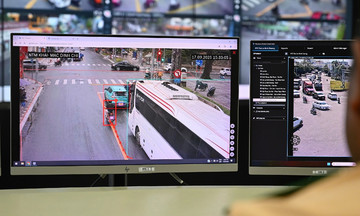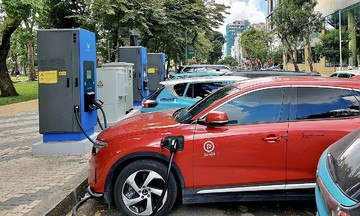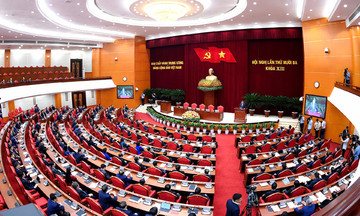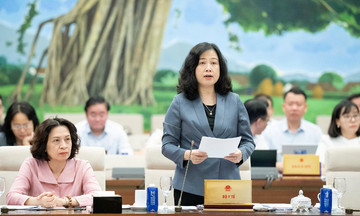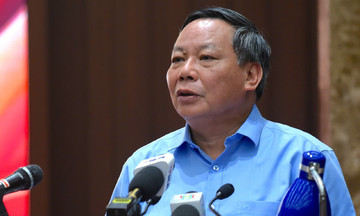On 16/9, the Politburo and the Secretariat held a national conference, attended by over 1.2 million party members both in person and online, to disseminate four new resolutions.
Prime minister Pham Minh Chinh presented a thematic report on Resolution 71 of the Politburo concerning breakthroughs in education and training development, along with the government's action plan. He explained that the resolution, developed over four months under the direct guidance of General Secretary To Lam, holds strategic significance for developing high-quality human resources, propelling the country's growth, and aiming for prosperity, civilization, and happiness.
The prime minister acknowledged that general education has surpassed the OECD average, ranking high in the region. Between 2013 and 2024, Vietnamese students won 438 international Olympic medals. In 2024, Vietnam had over 22,500 scientific articles published in the Scopus database, with about 85% from domestic universities and the remainder from research institutes, hospitals, and businesses. Vocational education reached a training scale of 2.5 million people annually. Vietnam is among the first 21 countries to achieve the United Nations' Sustainable Development Goal for quality education.
However, he also pointed out challenges such as the education budget failing to reach 20% of total expenditure for many years, remaining below 18% for the past 5 years. The country also lacks about 102,000 teachers at all levels. Learning conditions are uneven, and higher and vocational education lag significantly behind international standards. A focus on degrees and titles, along with overlapping management mechanisms, reduces system efficiency.
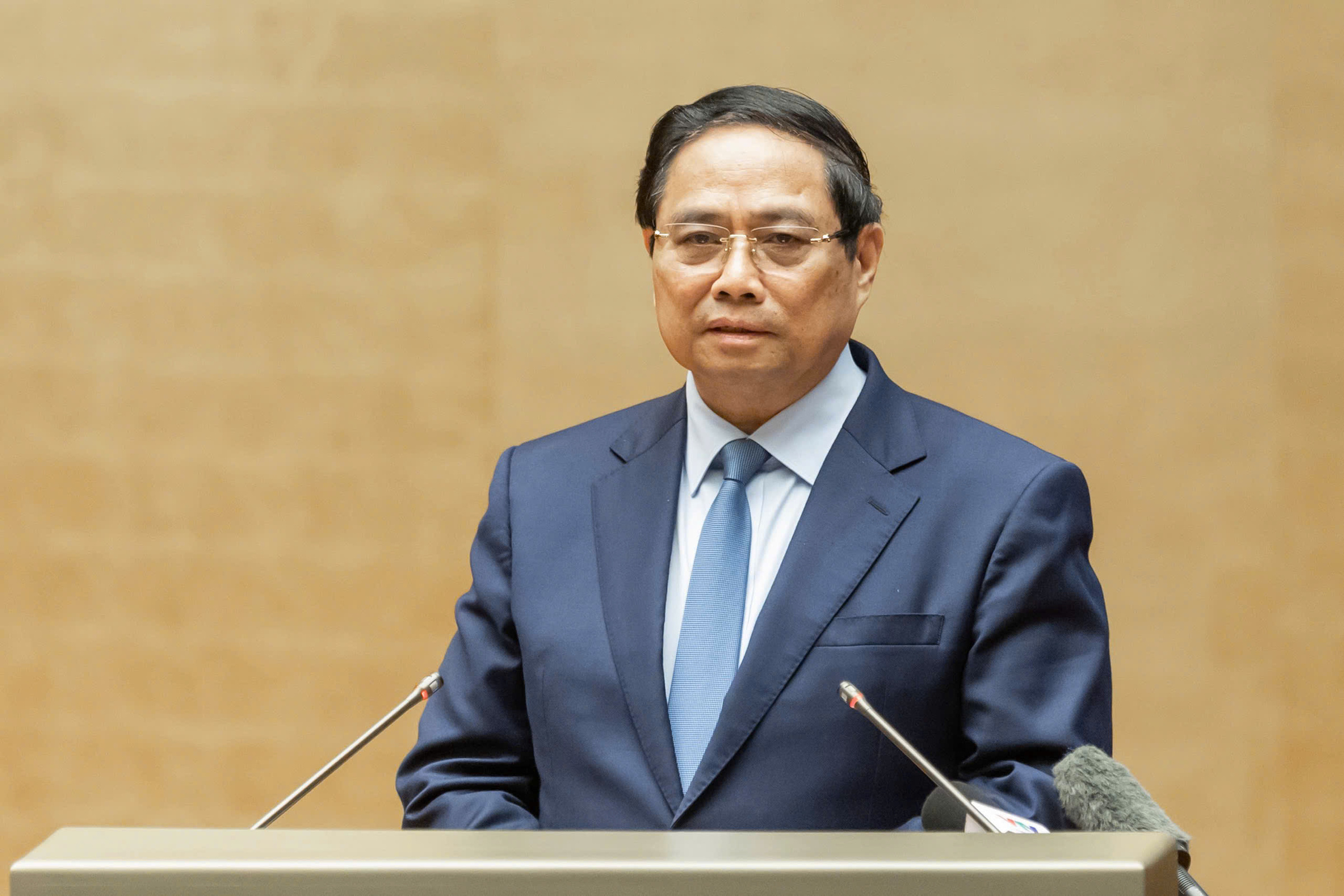 |
Prime minister Pham Minh Chinh speaks on the morning of 16/9. Photo: Hoang Phong |
Prime minister Pham Minh Chinh speaks on the morning of 16/9. Photo: Hoang Phong
The prime minister emphasized that Resolution 71 affirms education and training as a top national policy and the most crucial factor determining the nation's future. Learners are the center, schools the foundation, and teachers the driving force. Learning must be combined with practice, linking theory with reality, and schools with society. Preschool and general education are fundamental for personality formation. Vocational education is key to developing a skilled workforce, while higher education is the core of talent development, promoting science, technology, and innovation.
A national scholarship fund will be established using state budget funds and other legal sources to provide scholarships, encourage learning, support overseas study, and attract and nurture talent, prioritizing doctorates in basic sciences, engineering, and technology. The state will increase education spending, with a target investment expenditure structure of 5% and 3% for higher education. Priority will be given to allocating cleared land, exempting and reducing land use and rental fees, expanding credit for educational institutions, and promoting public-private partnerships, including leasing and borrowing public facilities.
The resolution also mandates a shift from administrative management to development facilitation. School boards will not be established in public schools, and party secretaries will serve as heads of educational institutions to streamline the apparatus and address overlapping functions. A strong autonomy mechanism for educational institutions will be developed to ensure autonomy in professional matters, internal management, and international cooperation, independent of the level of financial autonomy.
Policies for teachers are considered crucial. Sufficient staffing will be allocated according to standards; occupational allowances will be increased; there will be programs to attract outstanding lecturers from abroad with preferential treatment and co-ownership mechanisms; and talented individuals will be mobilized to teach specialized subjects. Along with the National Scholarship Fund, the government will provide a unified set of textbooks nationwide from the 2026-2027 school year and work towards free textbooks from 2030.
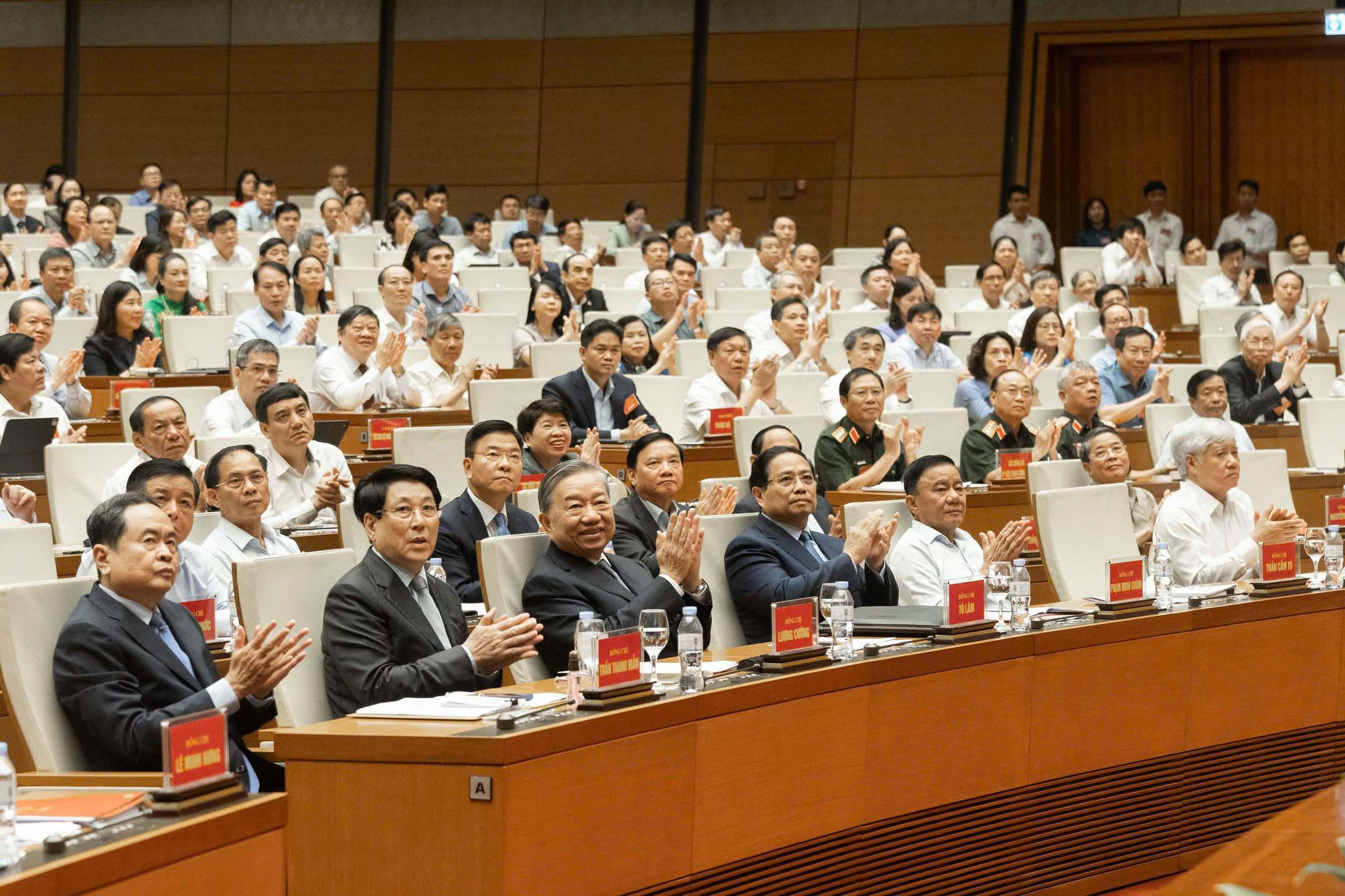 |
Delegates attend the national conference to disseminate four newly issued Politburo resolutions, morning of 16/9. Photo: Hoang Phong |
Delegates attend the national conference to disseminate four newly issued Politburo resolutions, morning of 16/9. Photo: Hoang Phong
Digital transformation and AI are the main focus.
According to the prime minister, the resolution aims for comprehensive digital transformation, developing a national education and human resources information system connected to labor market data; universalizing and strongly applying digital technology and artificial intelligence in teaching, learning, and management. English will gradually become the second language in schools; AI will be considered for inclusion in general education, possibly starting from 1st grade with a "learn while playing" approach suitable for the age group.
Development goals are categorized by timeframe. By 2030, 80% of general education schools will meet national standards; at least eight universities will be among the top 200 in Asia, with one university in the global top 100 in some fields; the rate of laborers with college or higher education will reach 24%, with at least 35% studying basic sciences, engineering, and technology.
By 2035, universal upper secondary education will be achieved nationwide, and the country aims to have two universities in the global top 100. By 2045, Vietnam's education system will be modern, equitable, and high-quality, ranking among the top 20 countries globally. High-quality human resources will become a core competitive advantage, contributing to Vietnam becoming a developed, high-income country.
For immediate implementation, the government issued Resolution 281 on 15/9 outlining an action program with 36 goals and 151 tasks, deployed under the "6 clear" principles: clear personnel, tasks, responsibilities, authority, time, and results. In 2025, the Ministry of Education and Training will finalize the draft Law on Education, Law on Higher Education, and revised Law on Vocational Education.
The ministry will also review and adjust the general education curriculum and develop a roadmap for teacher salaries and allowances. The university and vocational systems will be restructured, merging or dissolving substandard institutions; the policy of not establishing school boards in public schools will be completed before 9/2026. The government will also commence construction of 100 boarding schools in border areas from 10/2025, to be completed before 30/8/2026.
"Education and training are the key to unlocking the future; it is necessary to train global citizens who know Vietnamese and are proficient in common foreign languages like English," the prime minister stated. He expressed hope that Resolution 71, with its revolutionary solutions, will "ignite" the sector, students, and teachers to continue contributing to the cause of human development.
Vu Tuan






